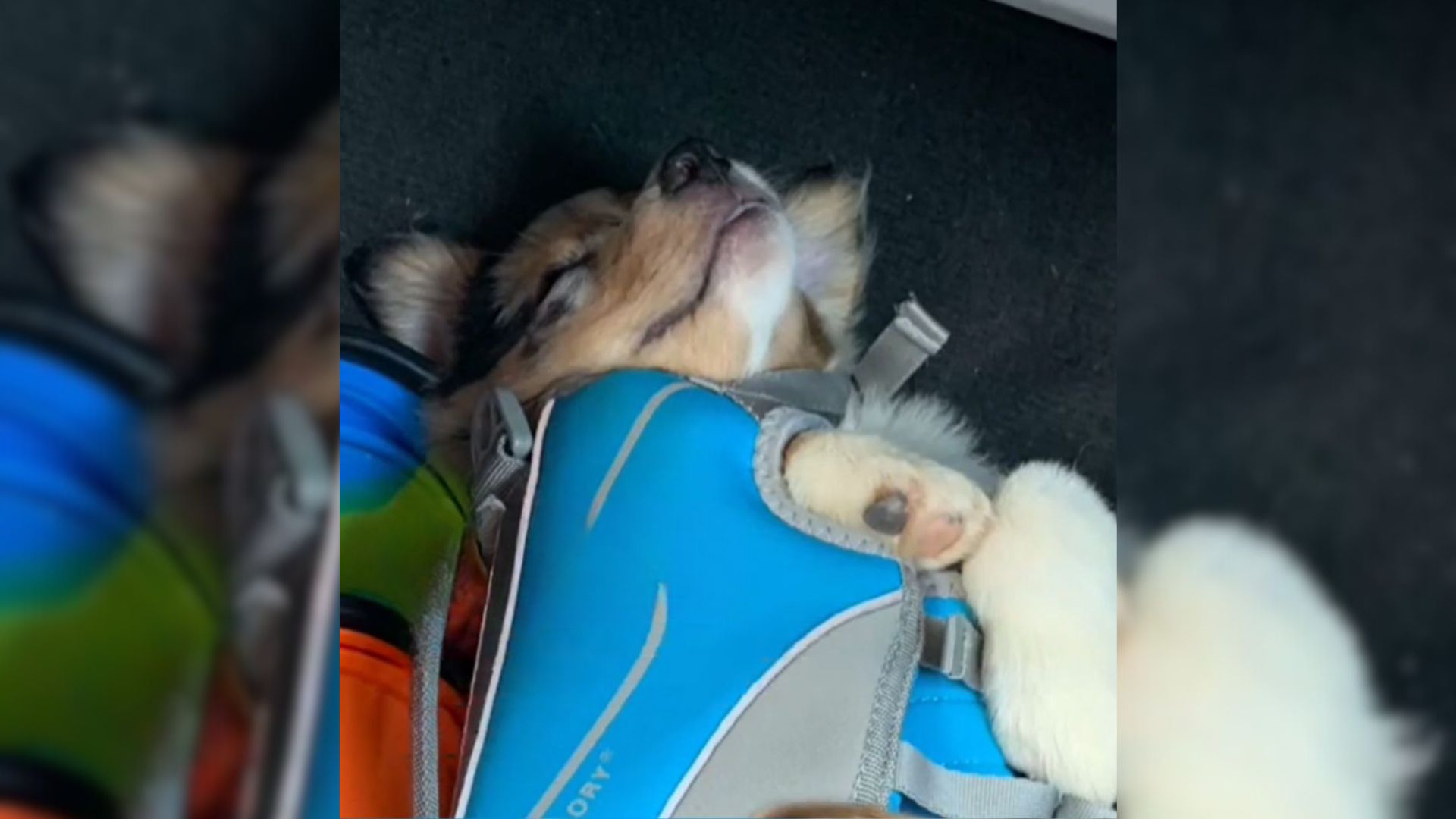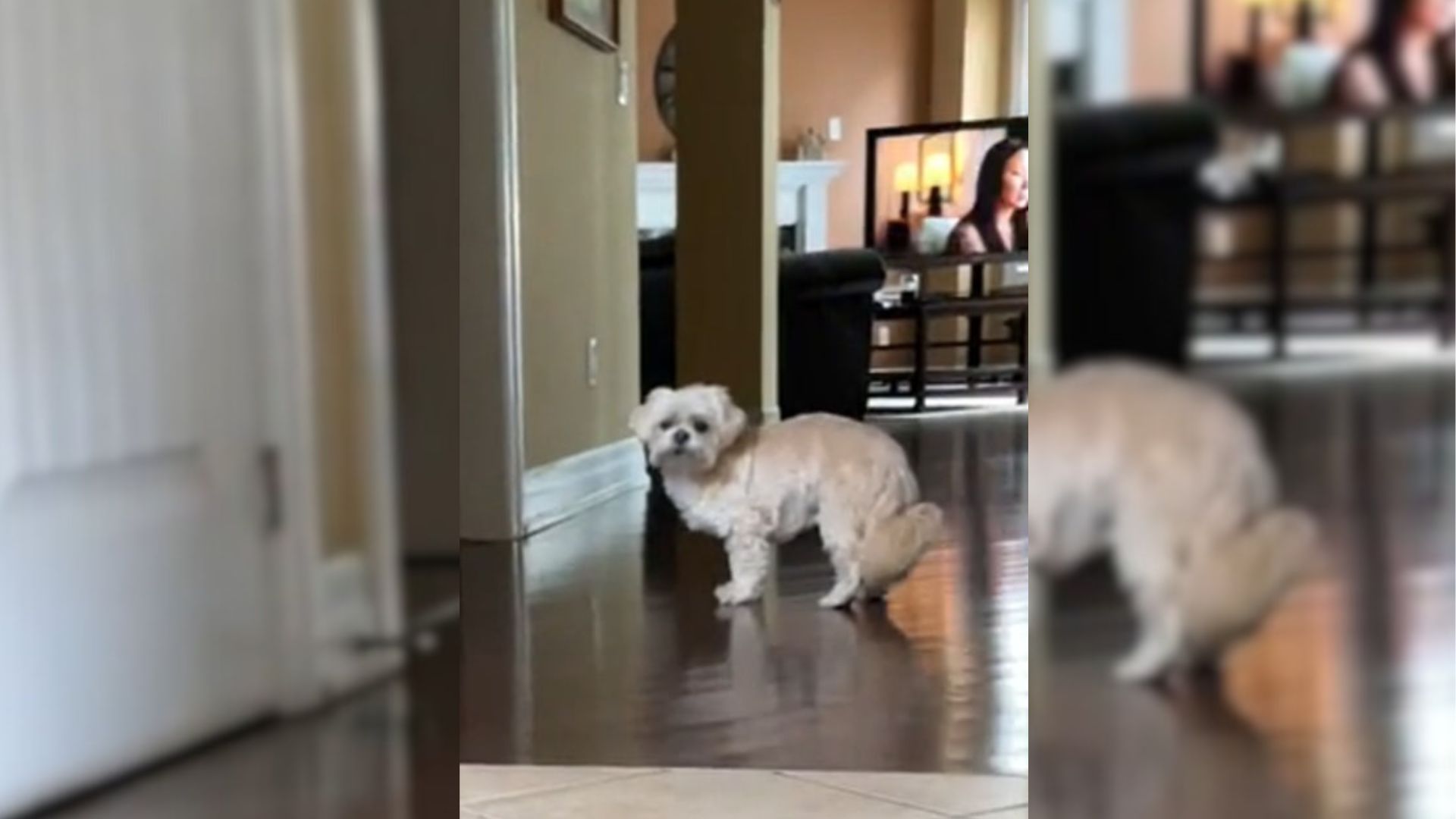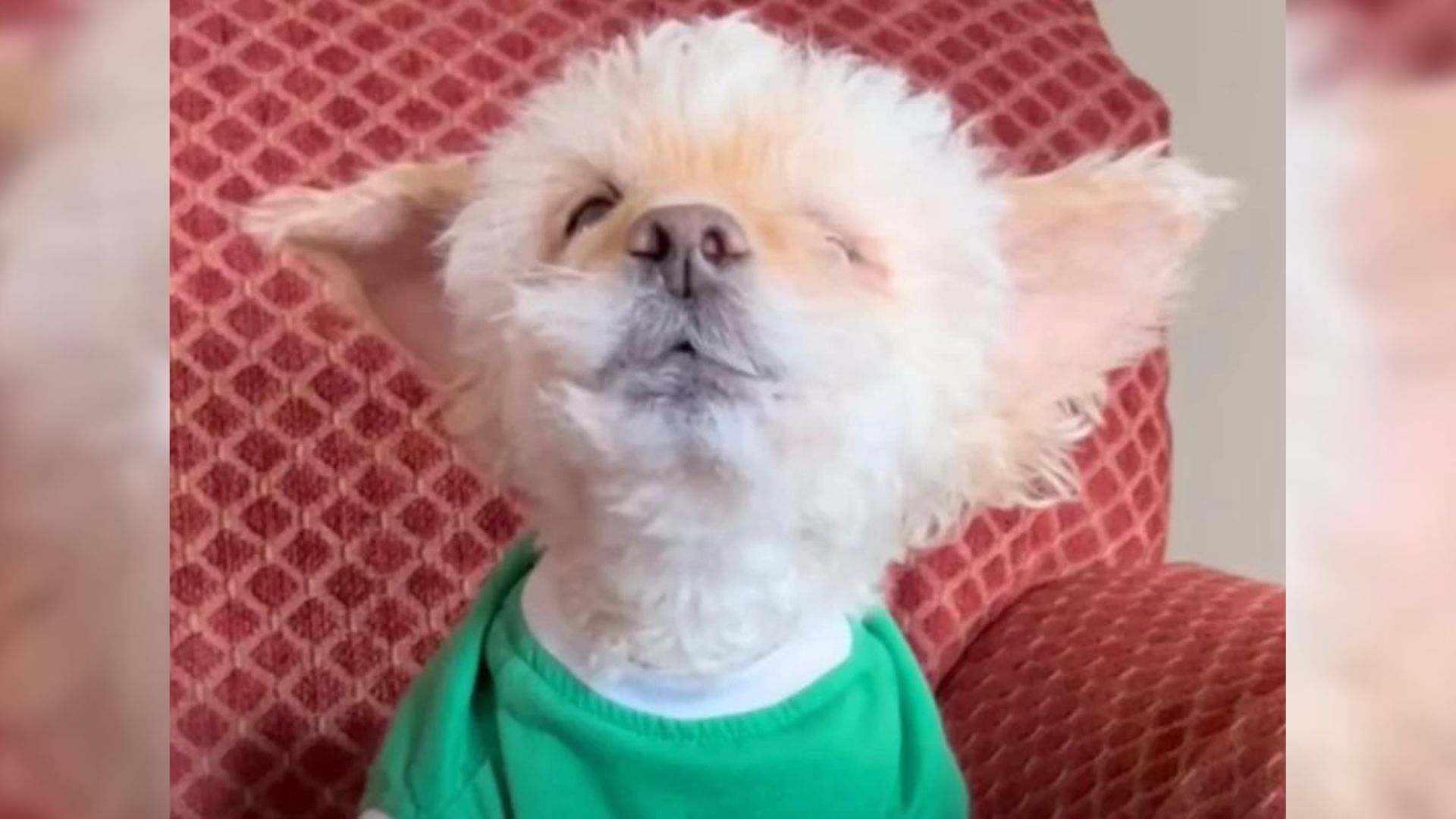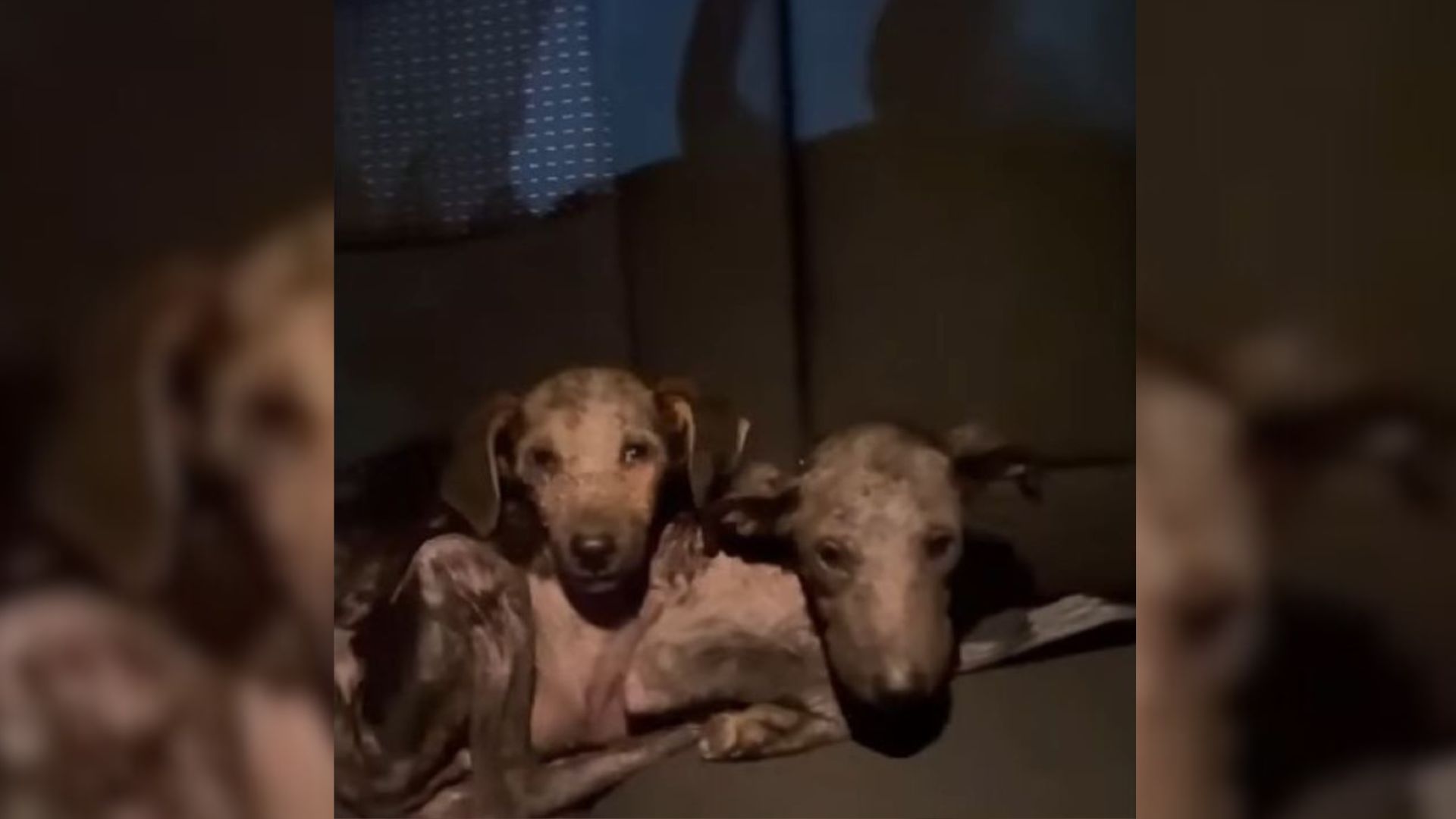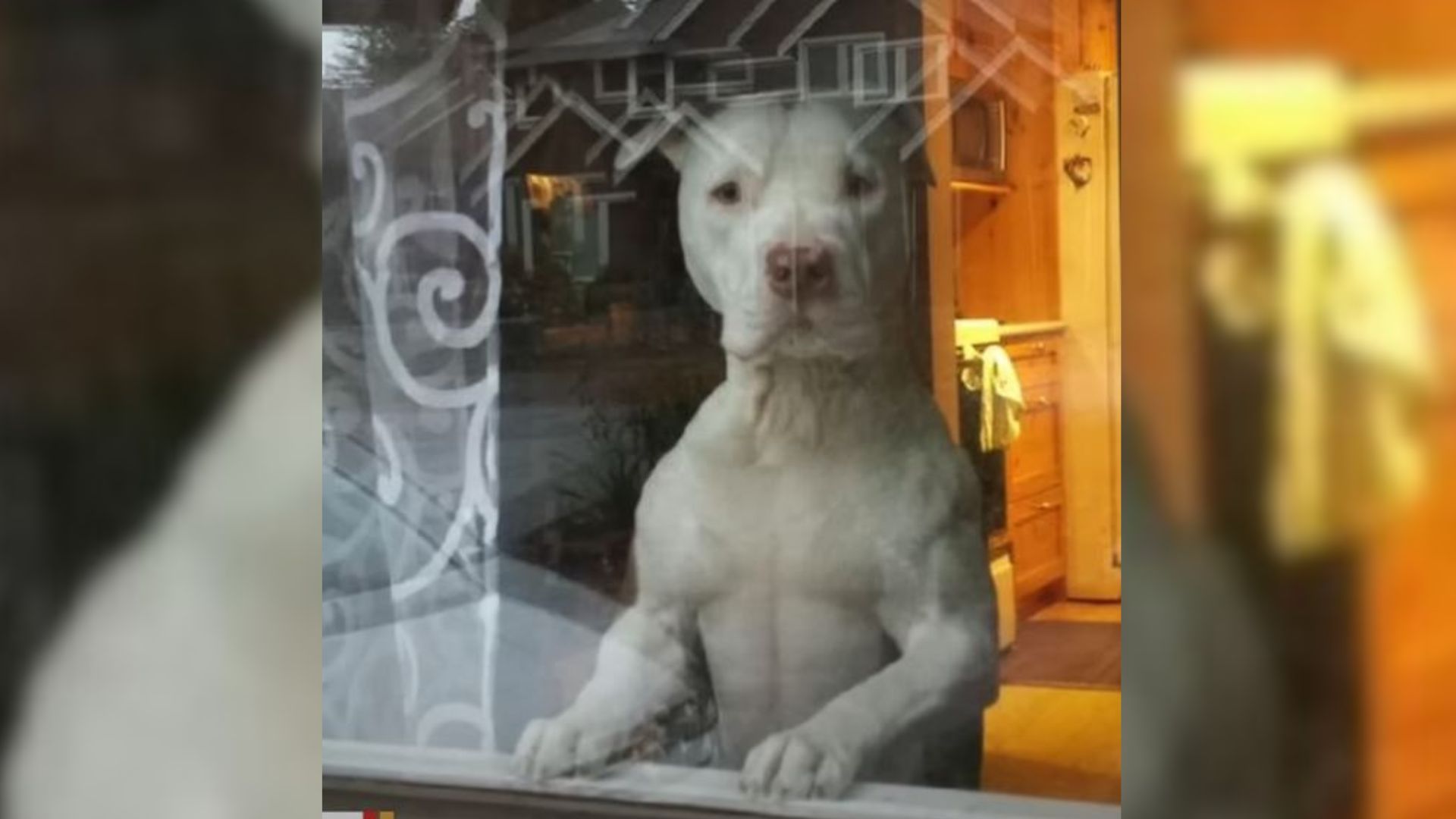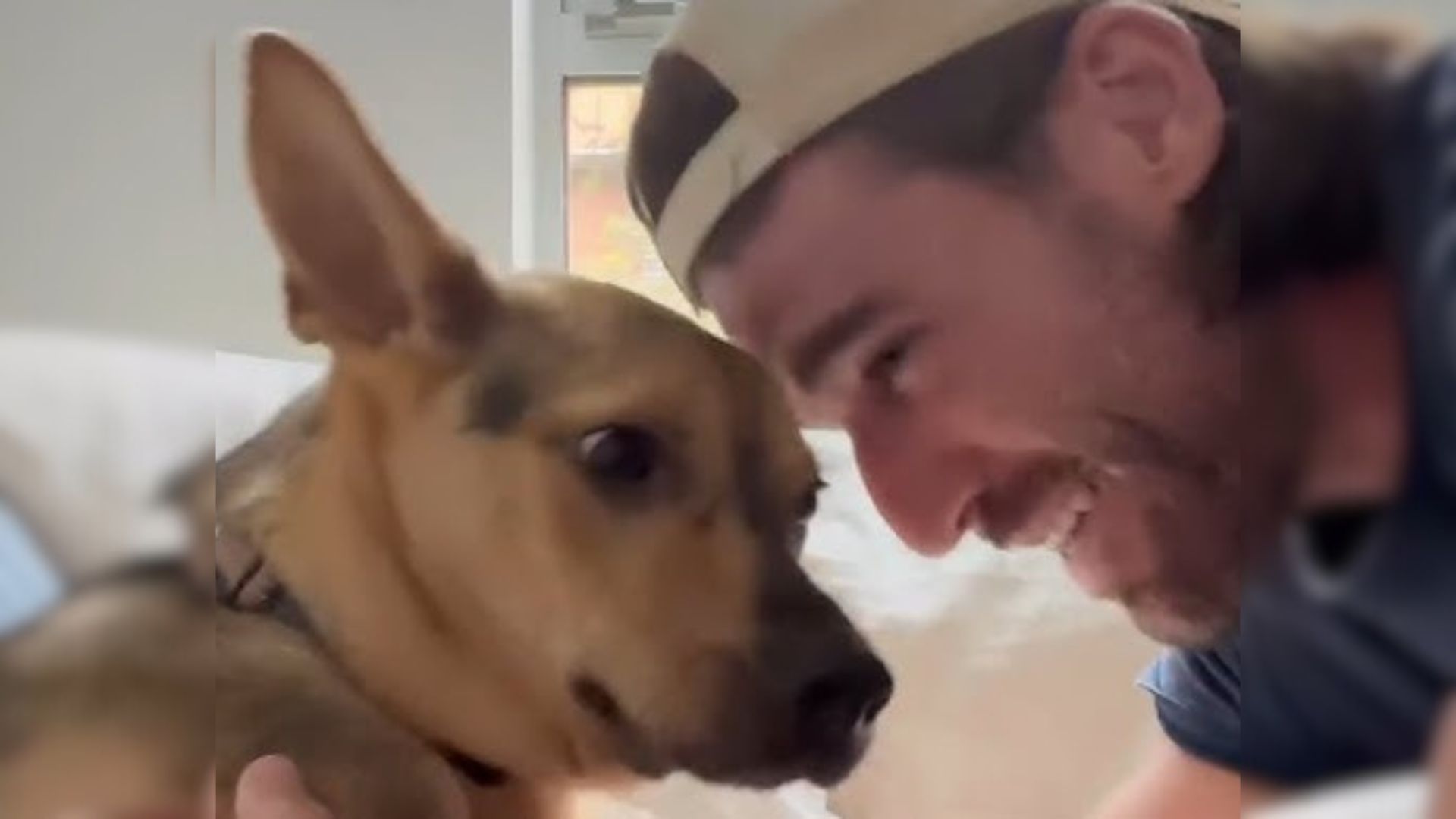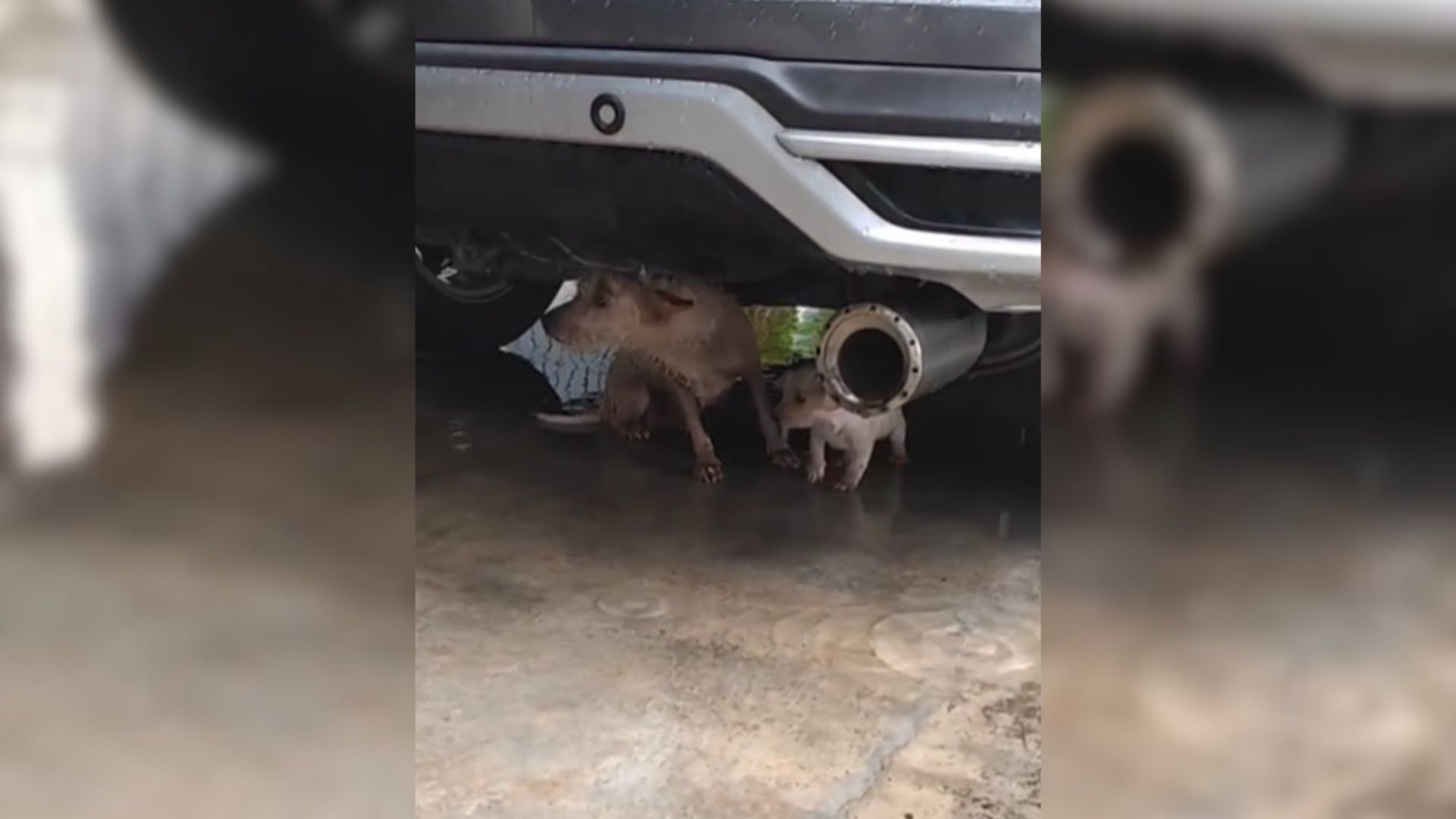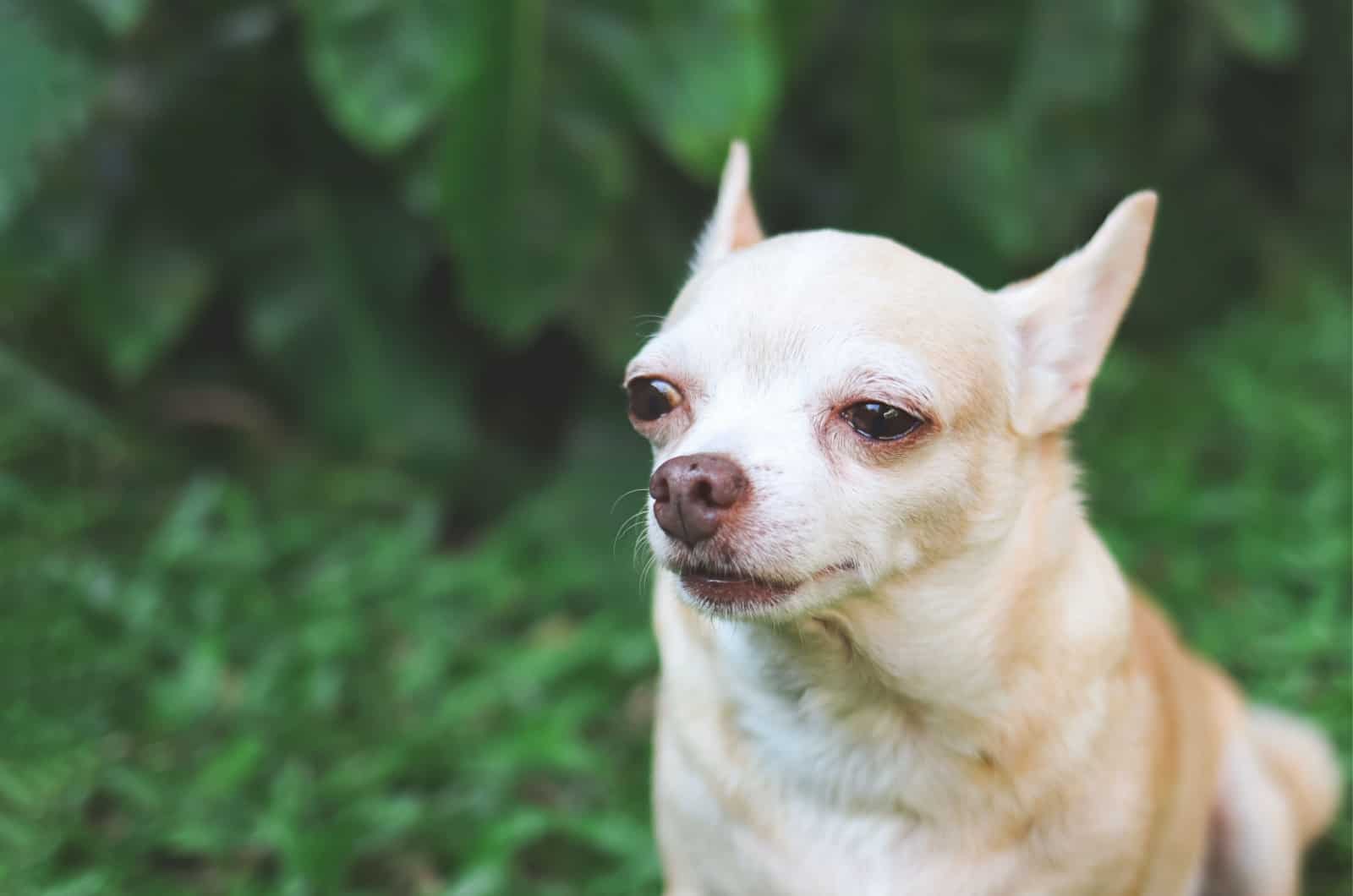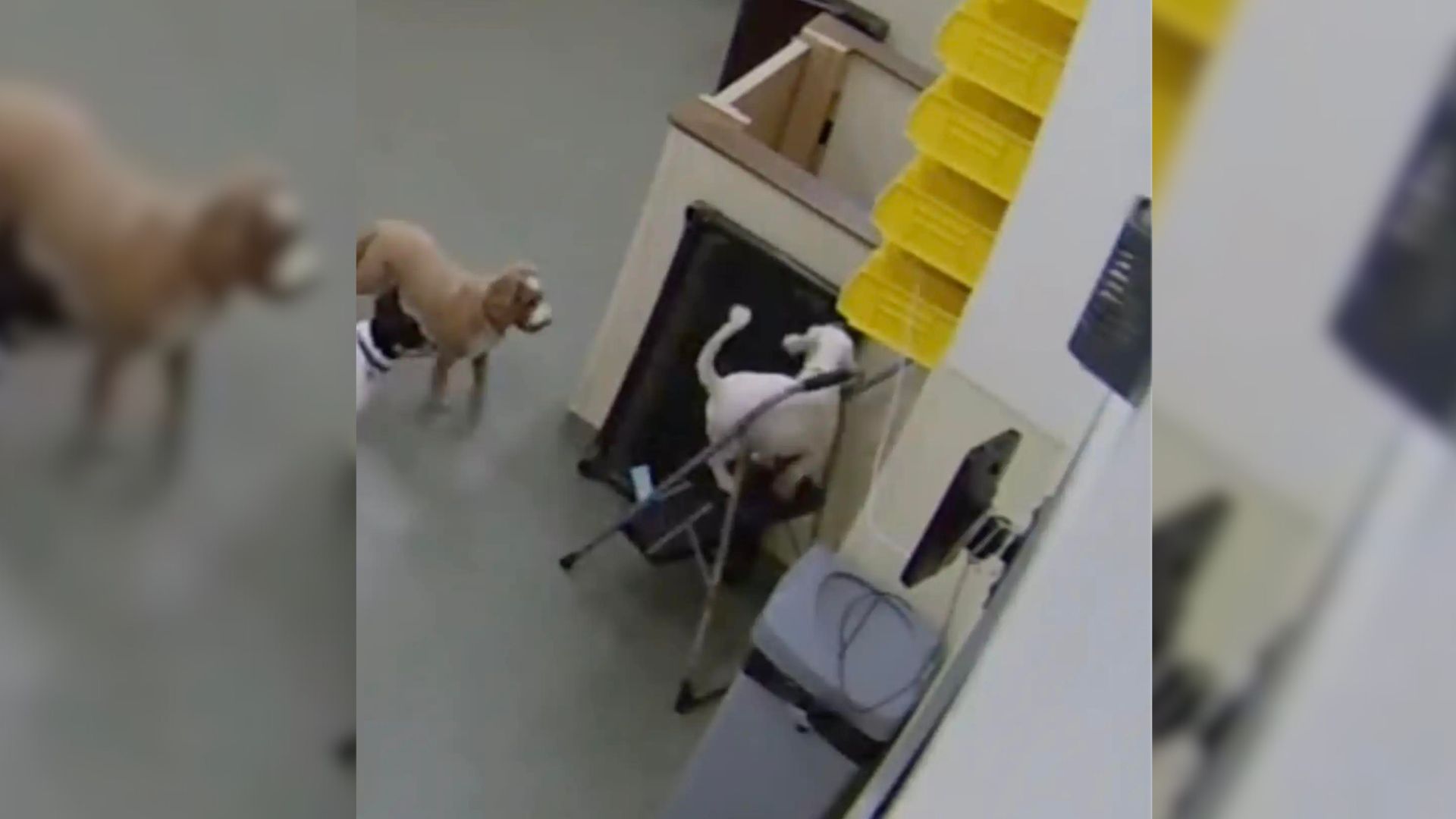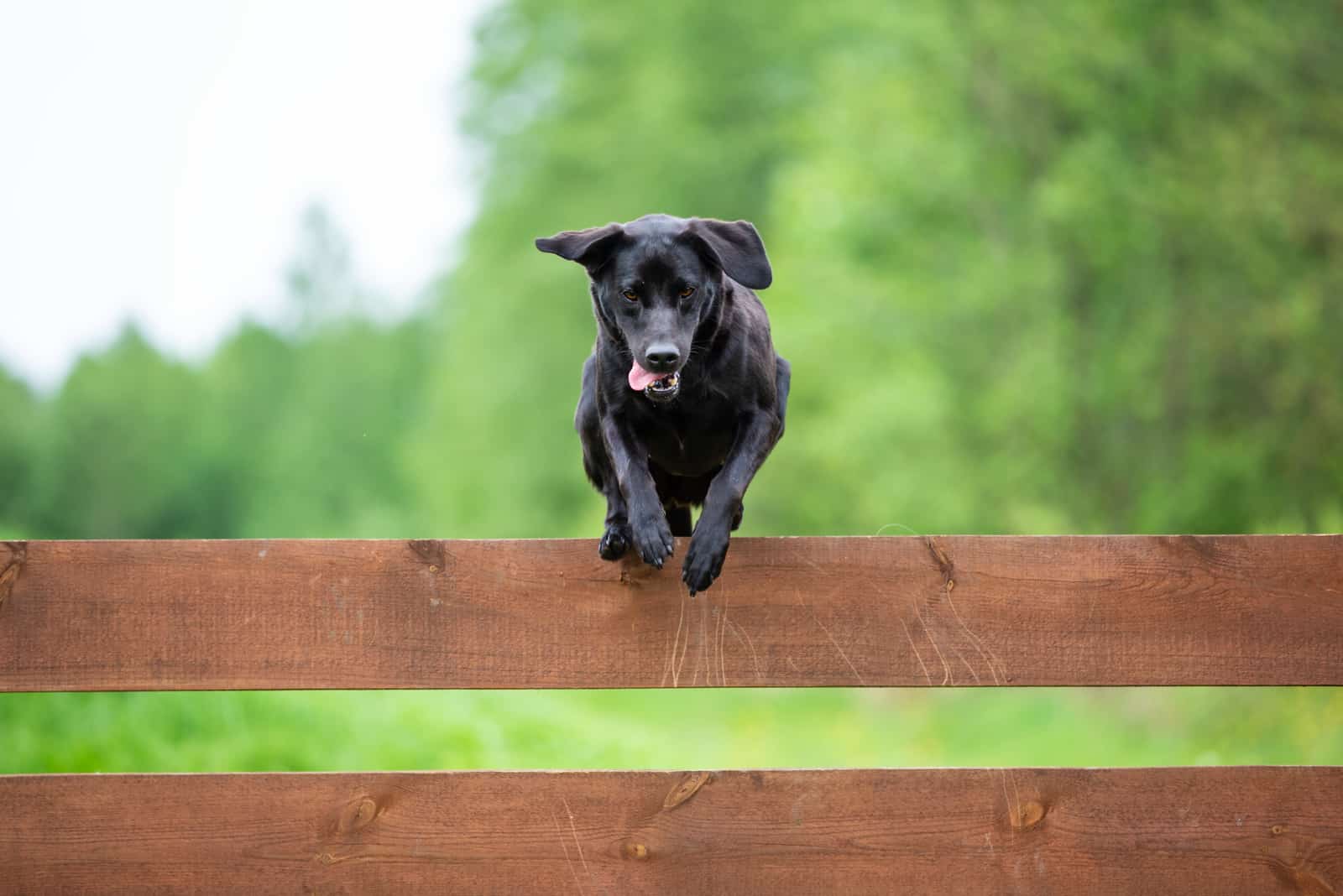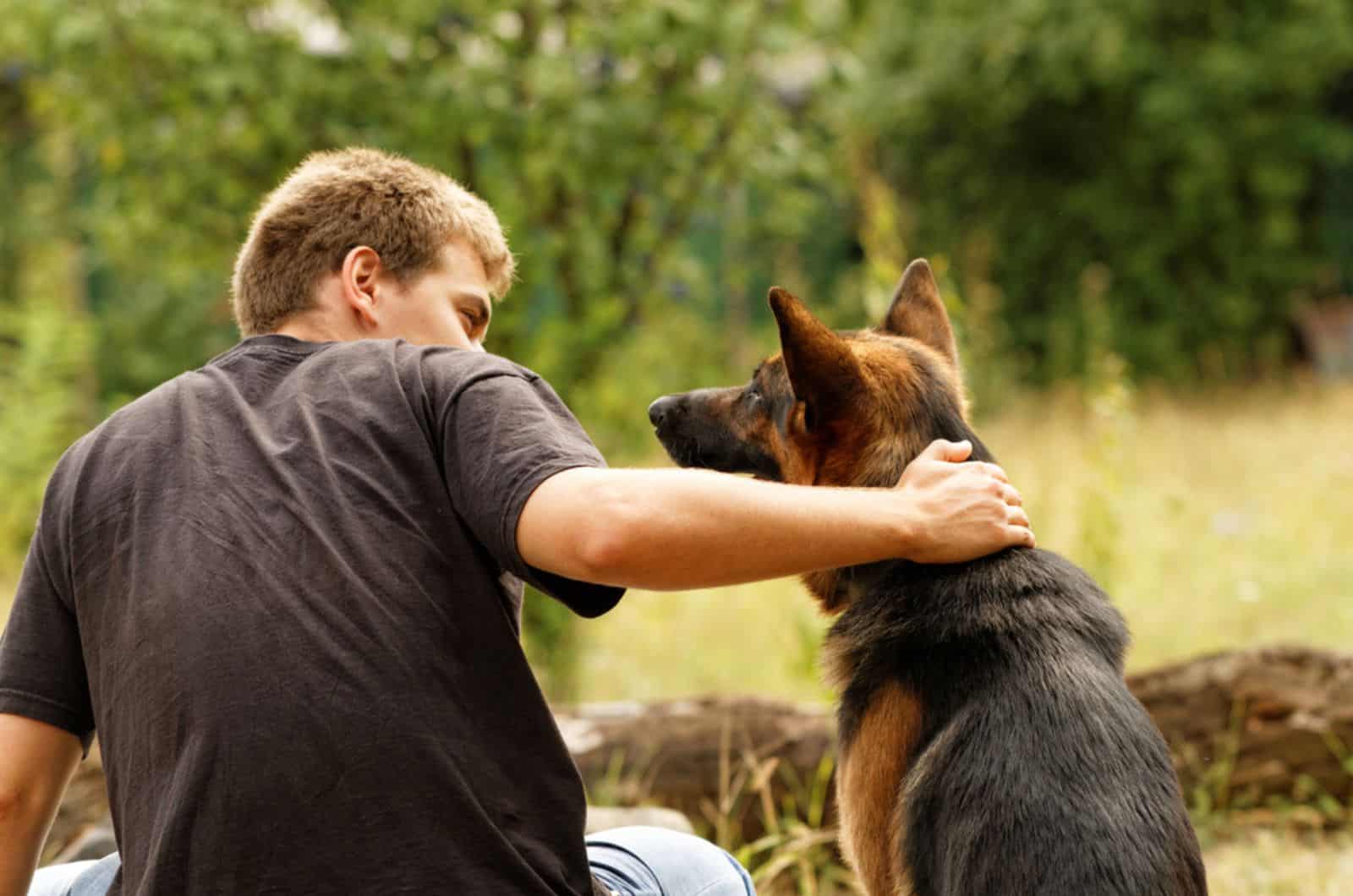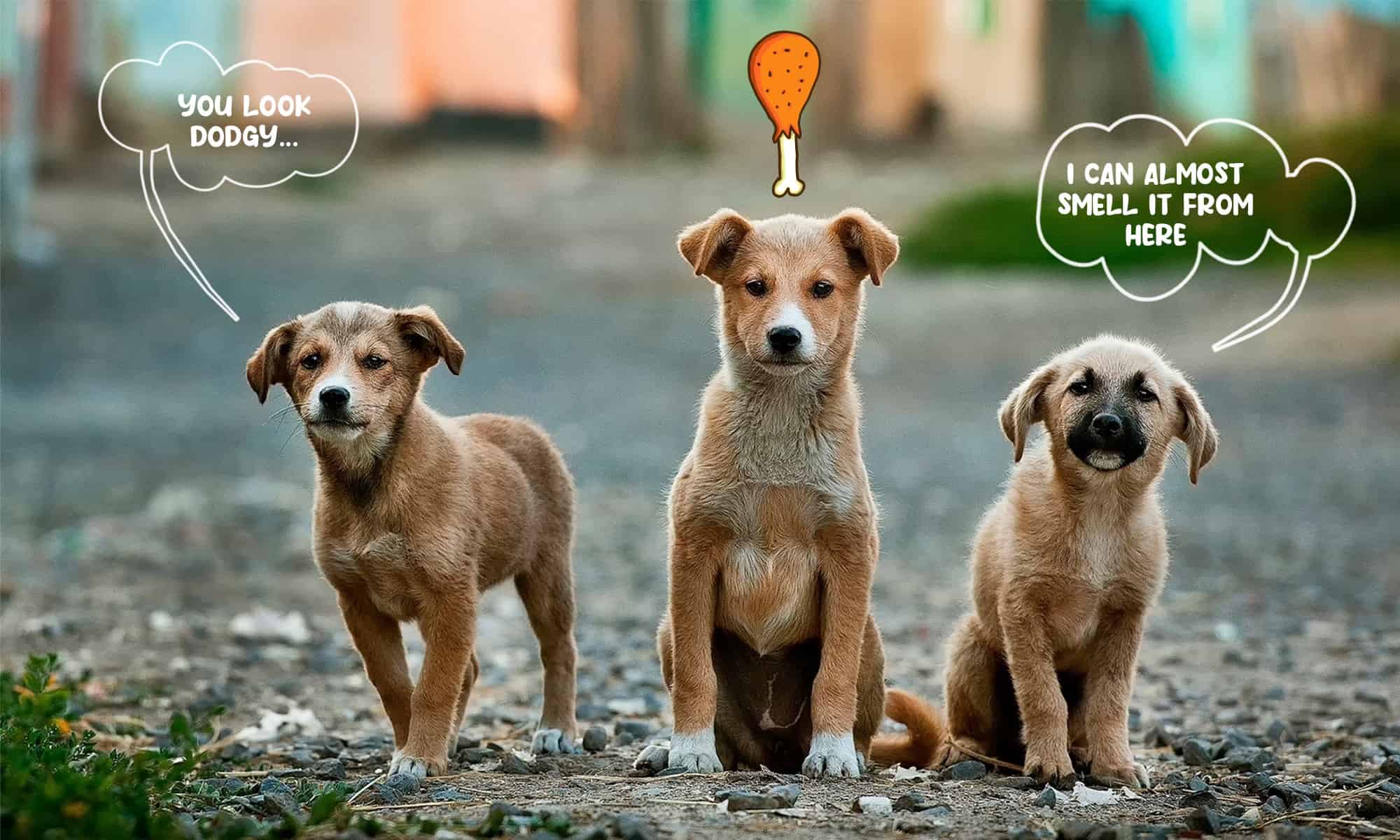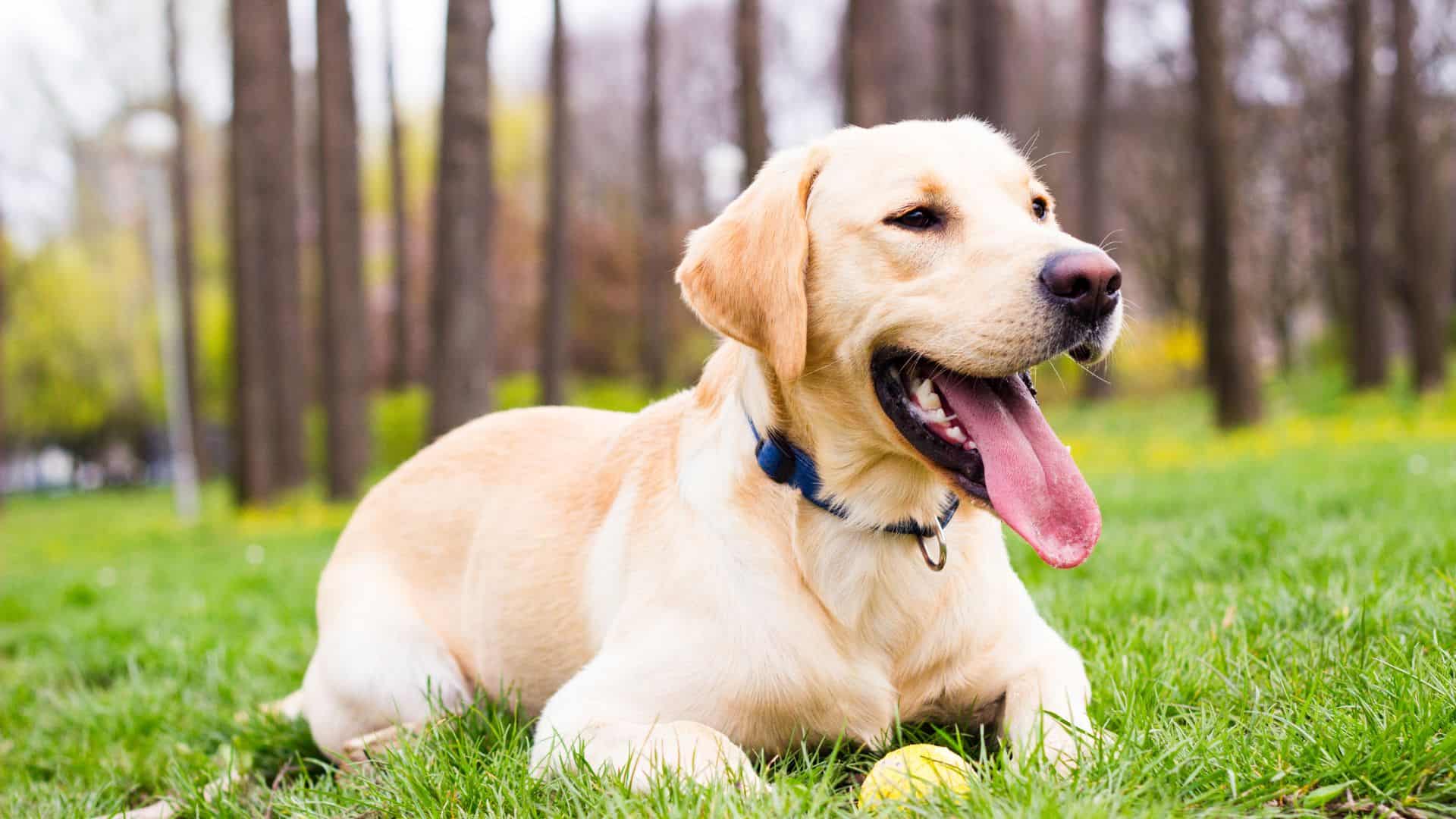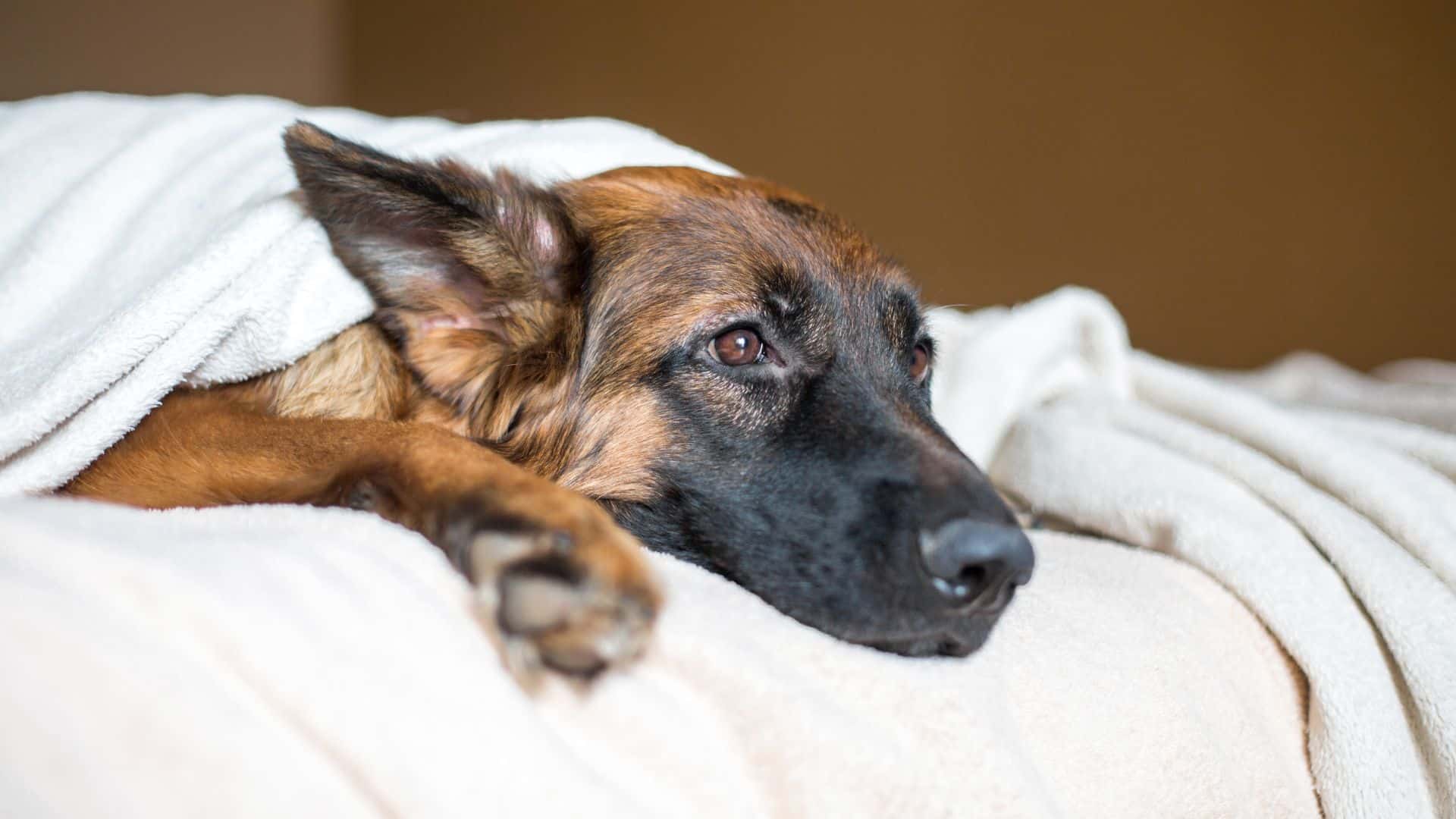It’s a bit hard for all of us to imagine that our dogs will one day be old. Looking at your furry friend who has enough energy to jump and play all day, it’s almost impossible for us to believe that it will be different one day.
However, all pet parents must know that their dogs will not be with them forever. If you own a dog that has a shorter lifespan, you must be specially prepared for symptoms that indicate that your dog is getting old.
It is common to notice some behavioral changes in older dogs, such as a reduced energy level, reduced appetite, and a dog’s desire to be alone as often as possible.
However, if you have also noticed that your dog is constantly panting during the night, you are probably immediately worried.
What is happening? Why is my senior dog panting at night?
Keep reading to find your answer.
Why Is My Senior Dog Panting At Night?
An old dog panting is not an uncommon phenomenon. Every dog pants sometimes and you must have witnessed this at least once, for example, your dog probably panted while driving in the car.
However, if you have an older dog and you have noticed that it is panting intensively during the night, there is a reason for this behavior.
It might be a health issue and you should react as soon as you notice this phenomenon in your old pet.
Let’s see the most common reasons why do dogs pant at night.
1. The Dog Is Hot
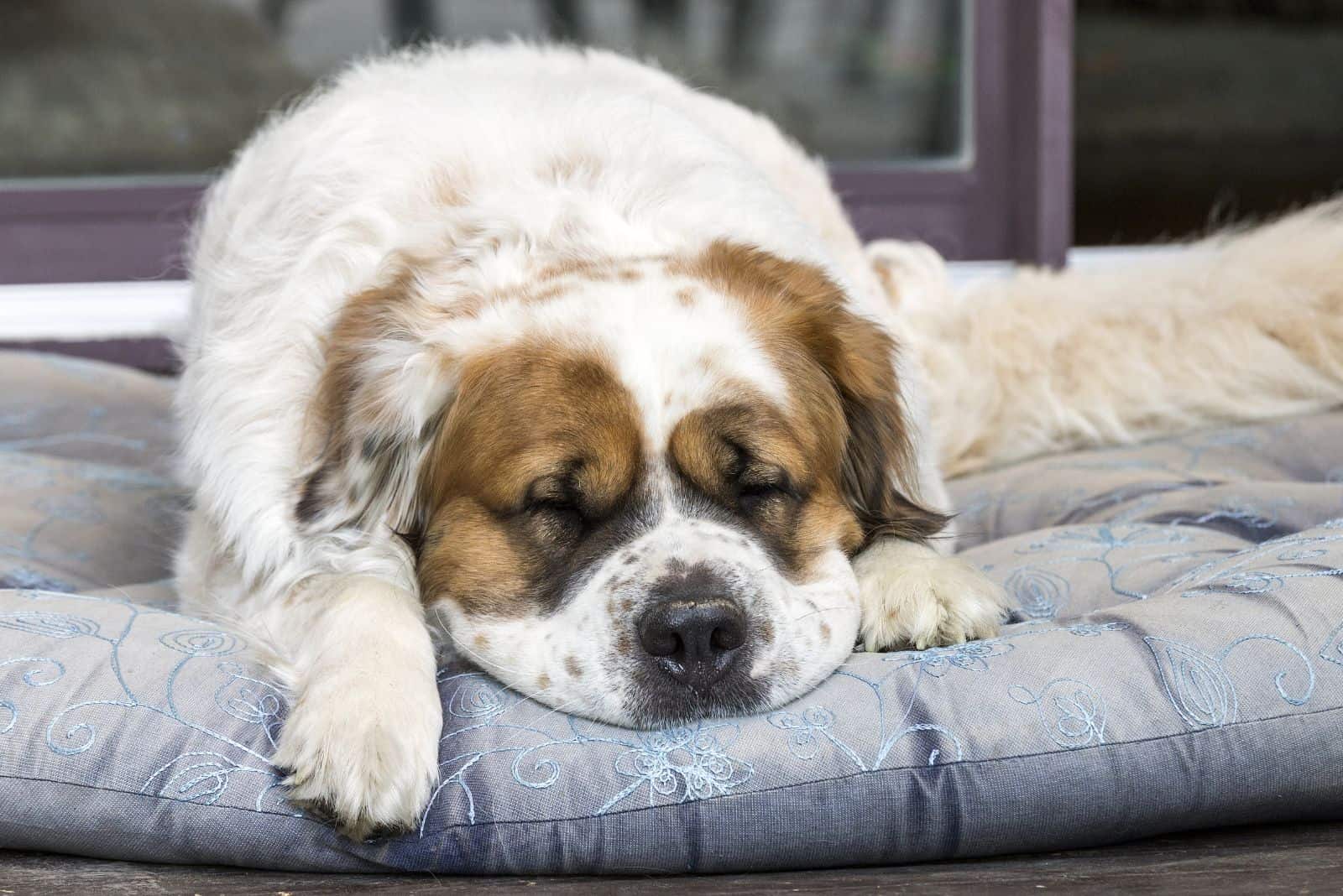
Sleeping in an overheated room can cause an older dog to pant. This can happen not only in the summer, when it is already hot, but also in the winter, when the dog sleeps in a heated room.
Sleeping in an overheated room is not suitable for a dog’s health. If the dog has no other space to sleep in, he might pant during the night to try to cool down.
Dogs only have sweat glands on their paws – so they don’t sweat like humans, and panting is their way of regulating their body heat.
2. Physical Activity Before Sleep Time
Many dog owners do not get to spend too much time with their pets during the day, so they try to make up for it late in the evening, when they are done with all their obligations.
So some dogs go for long walks, run, or play right before bed. When a dog is physically active, it takes a certain amount of time for its body temperature to return to normal.
Some dogs will need quite a long time, so they will pant during their sleep. Learn more about the dog’s temperature in our dog temperature chart article.
It is recommended that dogs not be subjected to significant physical activity immediately before sleeping. This is especially important when you have an older dog whose body has weakened and needs more sleep.
3. Senior Dog Anxiety
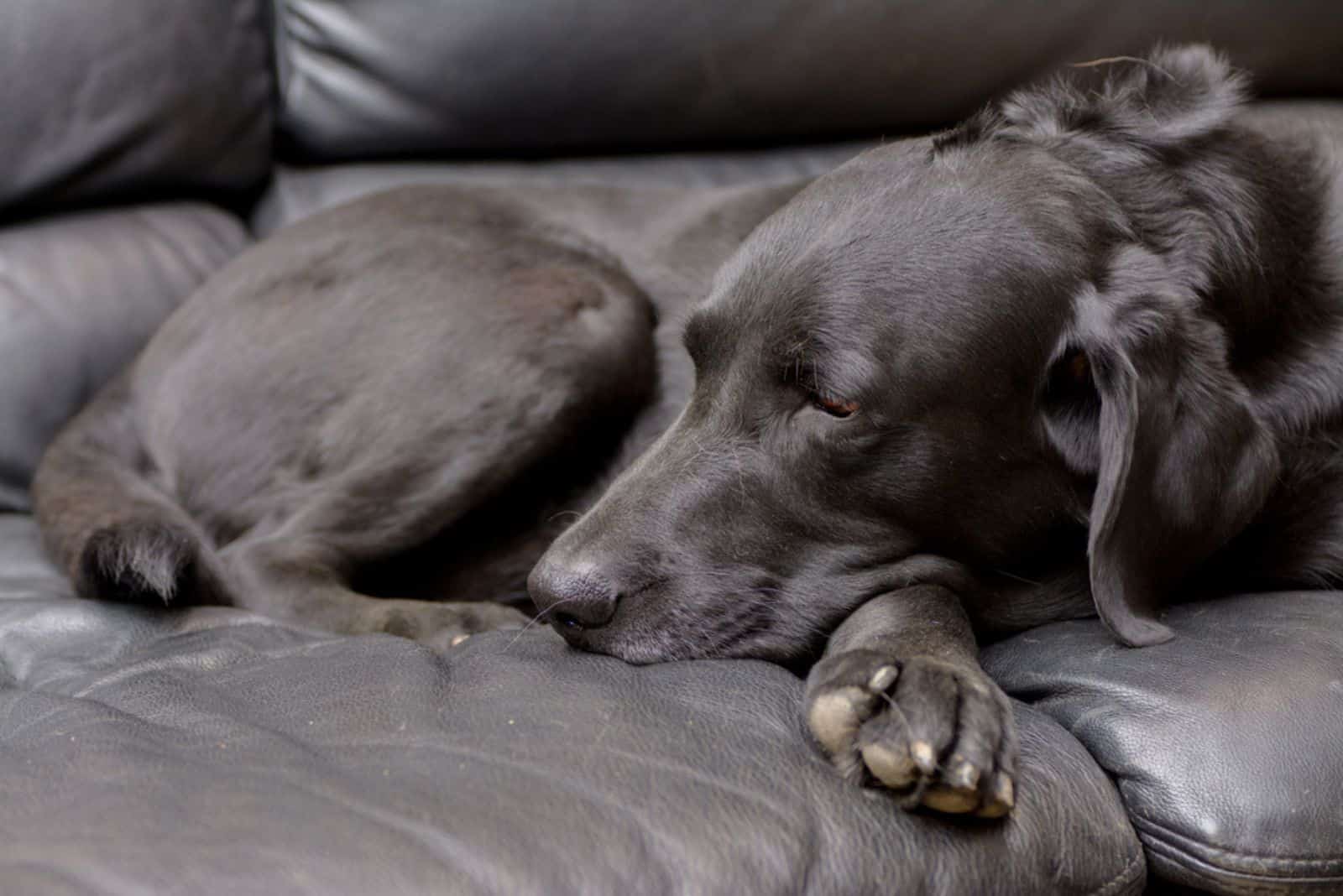
Various triggers can cause anxiety in dogs, which increases even more as the dog ages. Loud noises like fireworks or thunderstorms can cause fear and anxiety in a dog.
Furthermore, the dog can be anxious because of some change in his life – such as a move or a new person in his home. Your old dog may even be afraid of the dark and feel insecure at night.
Also, your dog might be dealing with separation anxiety. Maybe you are absent most of the day and your elderly dog misses you and feels alone, which causes the dog’s excessive panting at night.
Every dog owner should first determine what might be causing their pet’s anxiety and then try to help their old dog overcome his fear. Some dogs suffer from such severe anxiety that you might need to consult a dog behaviorist.
4. Late Night Meal
If your dog has his last meal right before bed, this can cause him to pant during the night. In addition, the food that the dog eats so late can cause gastrointestinal problems, so the dog may suffer from bloating or stomach cramps.
It is not recommended to give the dog a meal right before bedtime.
Every dog needs a certain amount of time to digest food, and this is especially the case with older dogs. Please give him a meal a few hours before his usual bedtime to ensure that your dog’s stomach and intestines are not stressed during the night.
5. Disorientation
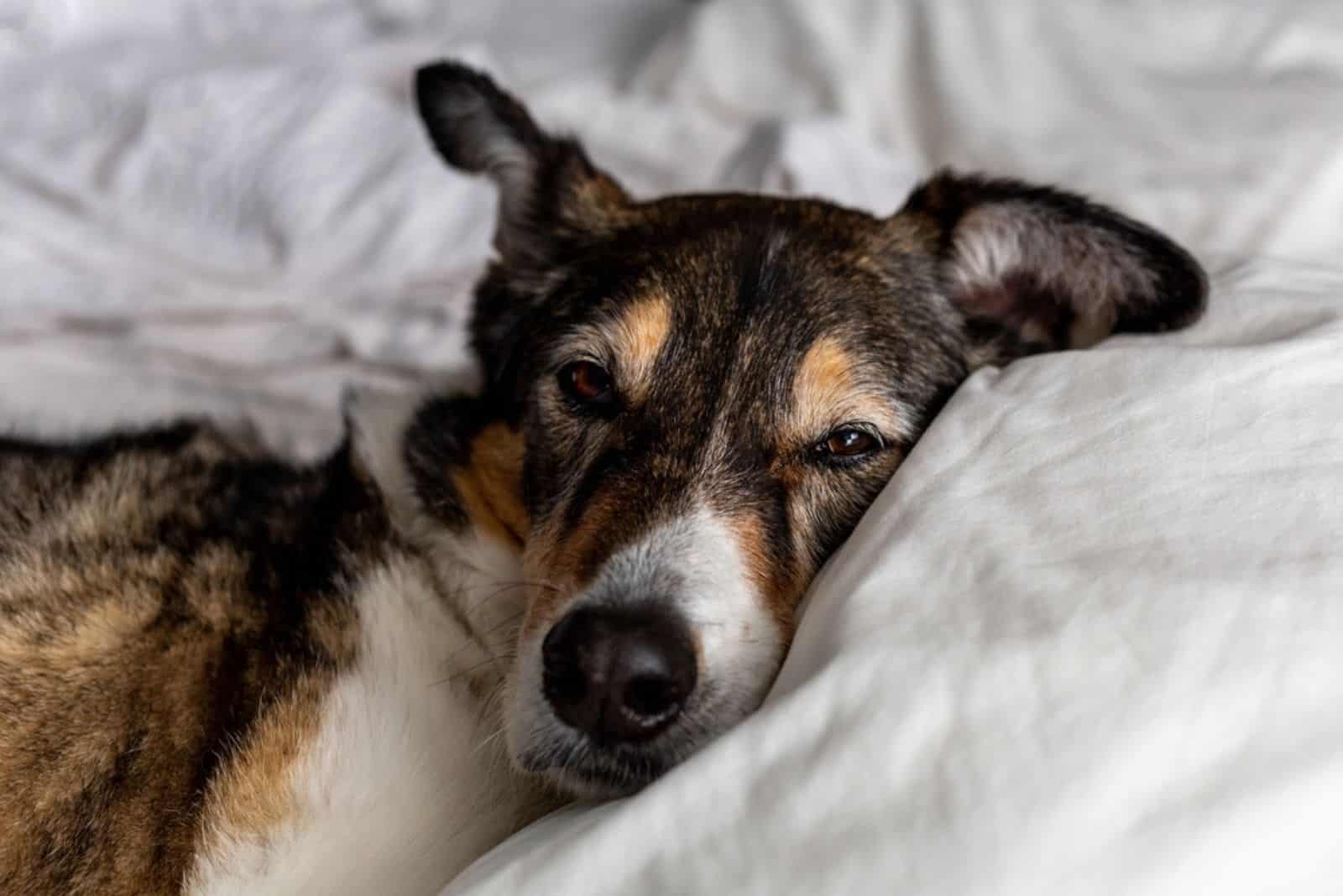
Disorientation is something that most older dogs experience. Simple things like walking might be an unpleasant experience for an older dog; he could bump into things while walking, knock them over, or even not notice the wall he runs into.
An older dog’s sight will weaken, slowing him down significantly. This can become so severe that the dog cannot function at all without the owner’s help.
Because of this, dogs can be frightened during the night when their owners are asleep and not there to help them. Feeling scared and unsecured makes an older dog pant at night.
6. Obesity
Maintaining optimal weight is equally important at all a dog’s life stages. If your dog is obese, he might have difficulties with everyday activities, such as walking or playing with you and your family.
Obesity negatively impacts a dog’s quality of life in general, and this is even more noticeable in seniors with other health problems who lack energy
All pet owners should know how heavy their dogs should be and, following that, give their dogs healthy meals that will satisfy their needs, but will not make them overweight.
7. Injuries
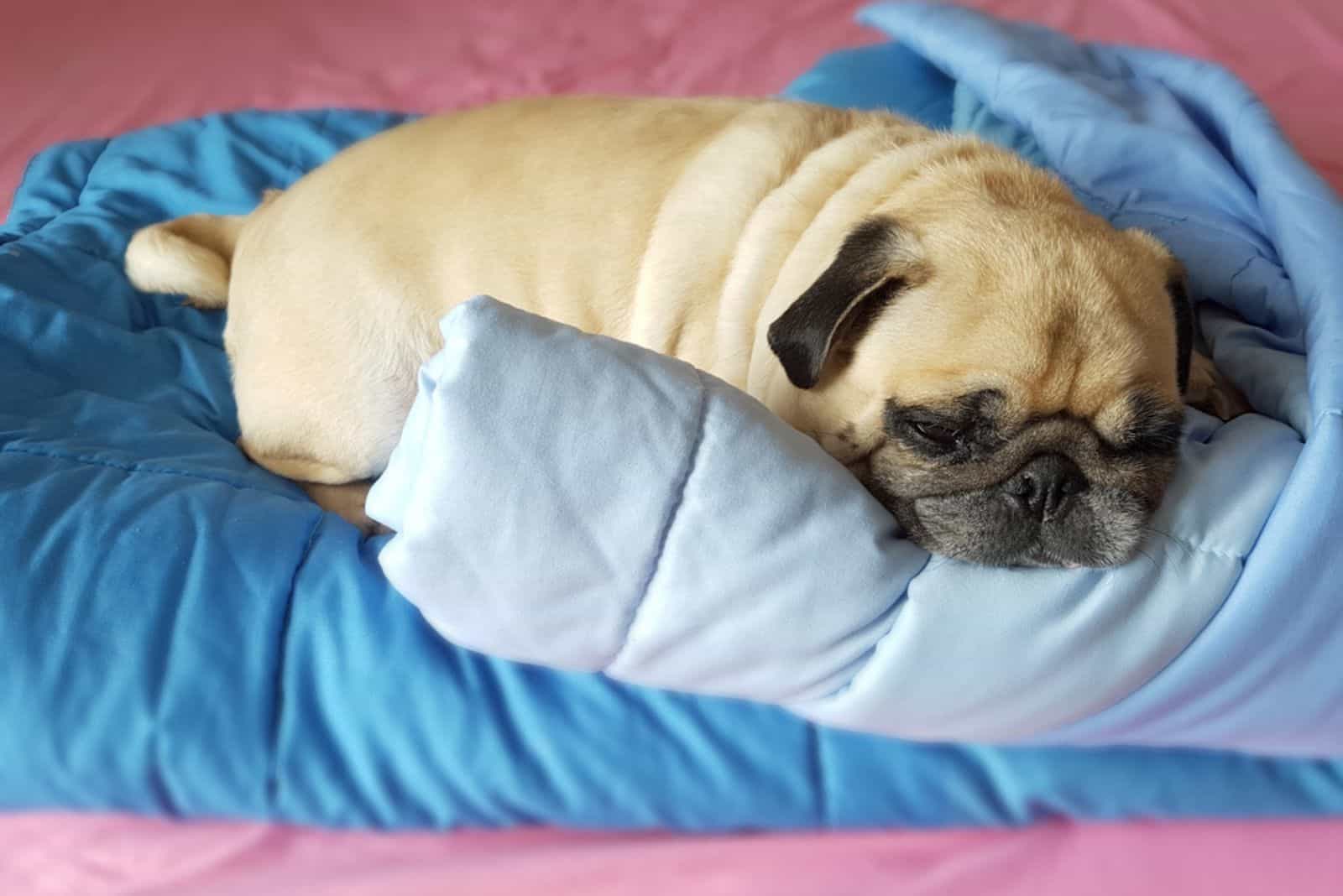
Older dogs might not be as strong as they used to be. Maybe your dog was excellent at running, jumping, or any other activity, but this has now changed. Perhaps your dog is having difficulty understanding that he is not as fast and robust as he used to be.
Furthermore, your dog might try to continue being active as he used to be, and this might lead to injuries. If your senior dog is panting at night, he might be in pain due to some injury.
Try to check if there are any bleeding or wounds on your dog’s body. If he won’t let you do this, he is probably in a lot of pain.
8. Loss Of Bladder Function
Urinary incontinence, the inability to control urination, can occur in dogs at any age but is especially common in older dogs. It happens more often in females, especially those who have been spayed.
As the dog ages, the level of hormones in its body decreases, and thus the dog’s ability to retain urine. In addition to the loss of bladder function, in dogs, accompanying diseases, such as urinary tract infections, can also occur.
Older dogs experiencing this might feel nervous, stressed, and might pant at night. Many dogs feel scared and insecure when they realize they are not able to spend a night without peeing inside.
If you notice this in your senior dog, you should immediately ask a veterinarian for help.
9. Anemia
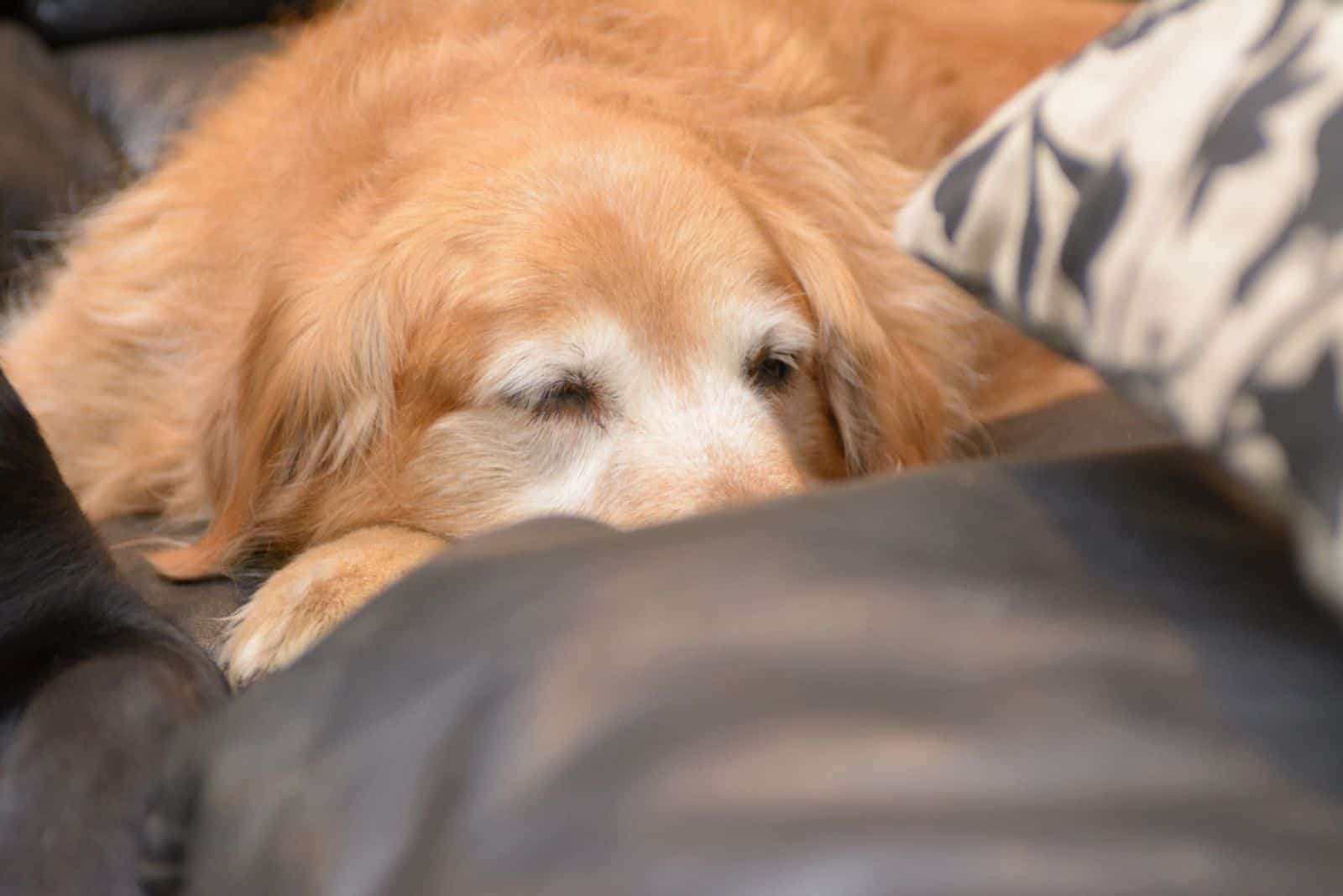
Anemia is when a dog has less than the average amount of red blood cells in circulation. Red blood cells or erythrocytes are cells in the dog’s bloodstream that contain hemoglobin that distributes oxygen throughout the dog’s body.
Anemia occurs in dogs for various reasons; such as due to a lack of iron in the dog or due to some serious diseases, such as kidney disease or tumors. If your dog has recently fought with fleas or ticks, he may become anemic due to blood loss.
An anemic dog will be lethargic and weak, he will have an increased heart rate, and he may pant during the night.
If you notice these symptoms in your dog, it is necessary to visit a veterinary clinic immediately so that the veterinarian can determine whether it is anemia. If the veterinarian confirms anemia, he will prescribe certain supplements to improve the dog’s blood count.
10. Breathing Difficulties
Some dog breeds have breathing problems, so some of them breathe fast, and some pant excessively at night. This is especially common with brachycephalic dog breeds, which have a shorter snout, and therefore experience difficulty breathing.
Some of the dog breeds that might experience breathing difficulties are Bulldogs, Pugs, Pekingese, and Boston Terriers.
However, if you notice abnormal panting in your senior dog, and you notice that it is not just its usual problems with breathing, you should visit the emergency vet.
11. Cushing’s Disease
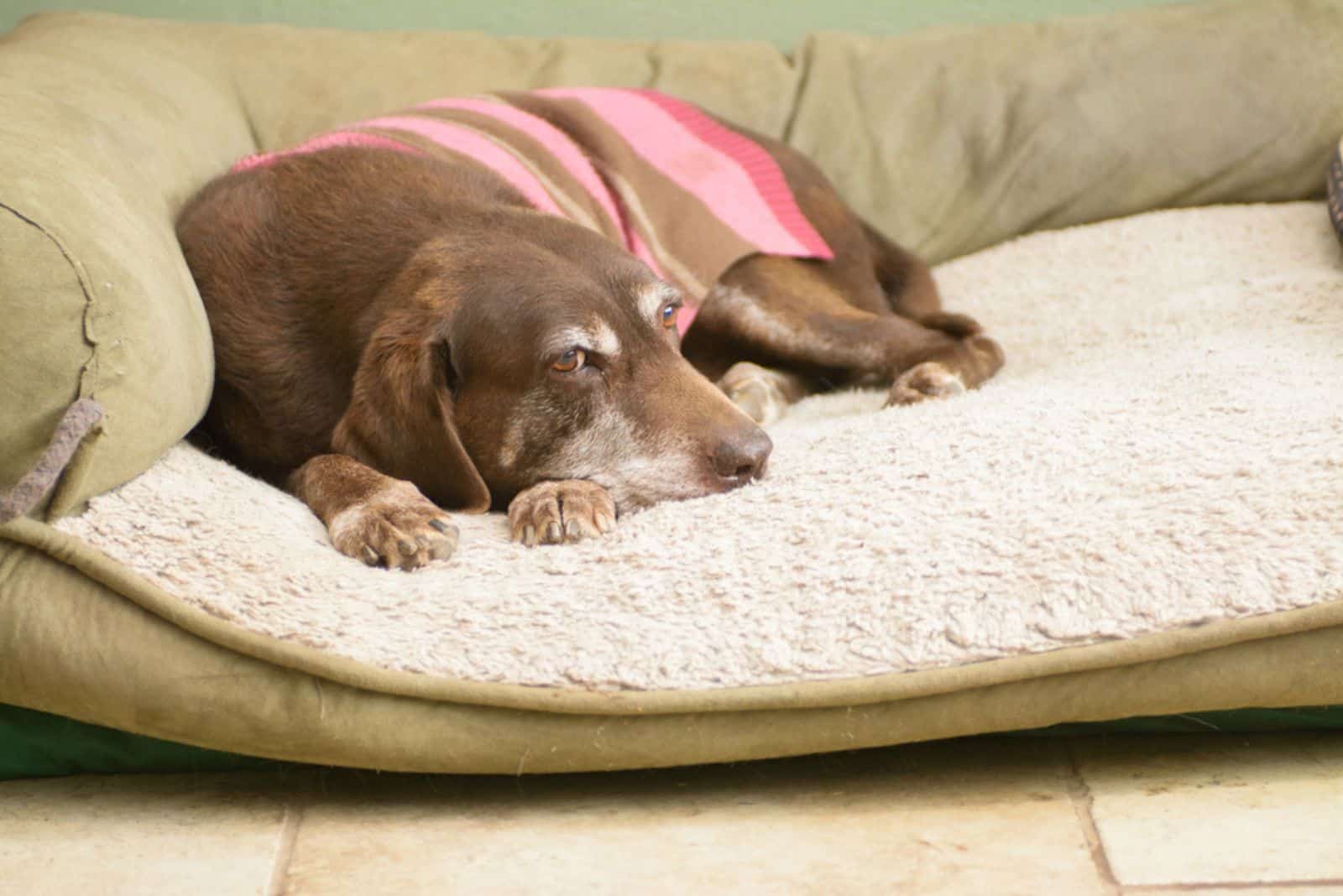
Cushing’s disease is caused by a chronically elevated concentration of glucocorticoids in the blood and most often occurs in older dogs.
The cortex of the adrenal glands secretes the hormones called glucocorticoids, with cortisol being the most important one. Cushing’s disease in dogs usually occurs due to pituitary or adrenal tumors.
If your dog is suffering from this disease, you might recognize the following symptoms:
• Frequent urination
• Increased thirst
• Gasping during the night
• Loss of hair
• Weight loss
There is no cure for Cushing’s disease, but it is possible to alleviate the signs of the disease with the help of appropriate drugs.
12. Heart Disease
Why is my dog panting at night?
Unfortunately, your senior canine companion might be suffering from heart disease.
Heart diseases can be inherited in dogs, but it can also be acquired during life, for example, parasites can cause heart disease in dogs.
There are clear symptoms that point to heart disease in dogs, such as panting during the night, weakness and lethargy, coughing, difficulty breathing, and an enlarged belly of the dog due to the accumulation of fluid in the abdominal cavity. Learn more about how a dog’s belly should look.
The veterinarian will suggest treatment options after examining which heart disease the dog is dealing with.
Some health conditions will require certain medications, and veterinarians usually advise both controlled physical exercise for the dog and a change in the dog’s diet.
13. Heatstroke
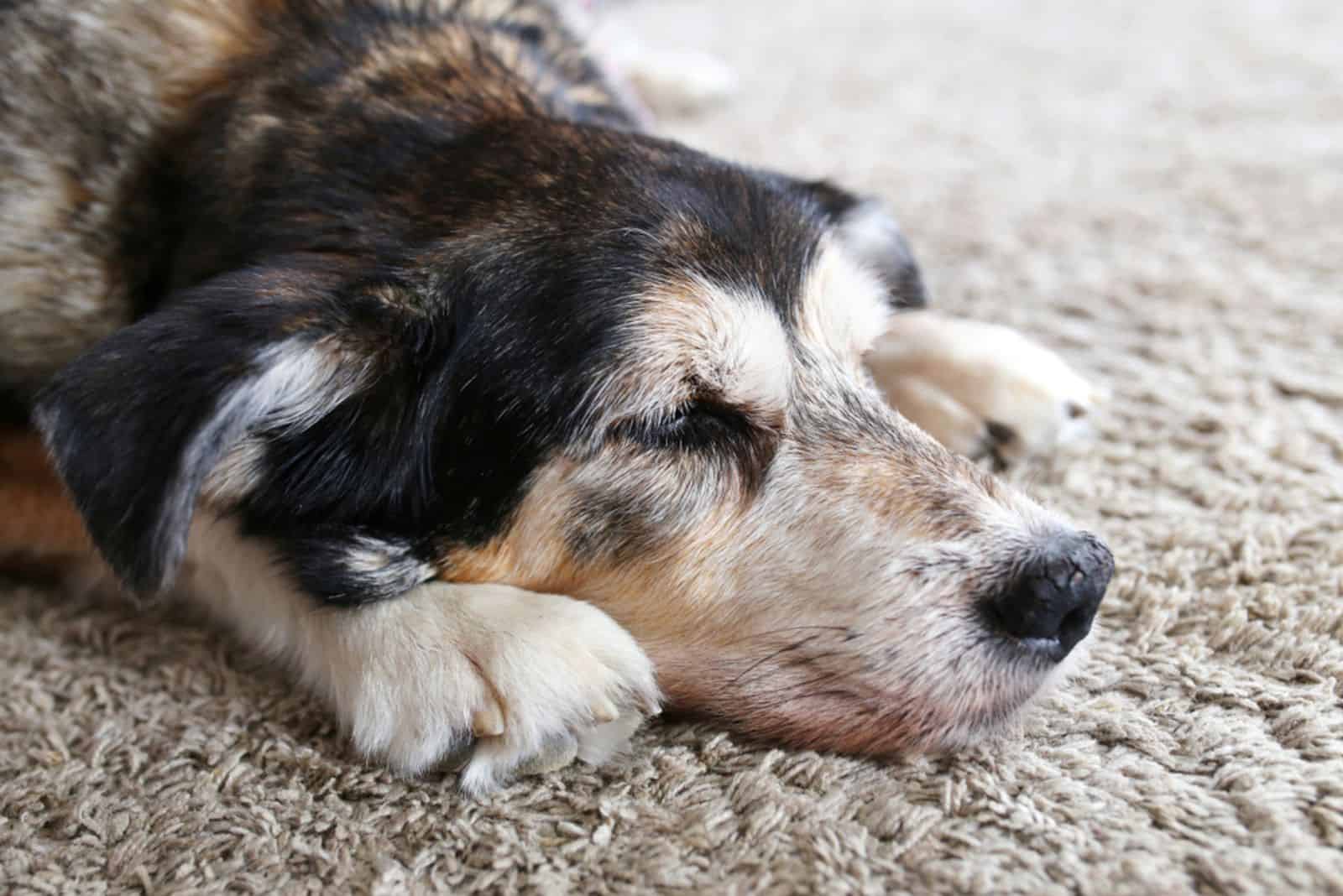
A heatstroke might be the cause of the older dog’s panting at night.
Does your senior dog like to lay in the sun? Well, you should not let him do this! High temperatures and exposure to sun might cause a heatstroke in dogs. Also, it would help if you never left your dog in a car without air coming in.
Besides panting, if your dog is having a heatstroke, you might also notice his gums changing color, him being disoriented, and having difficulties breathing.
Heatstroke in dogs is a severe medical condition that requires veterinary assistance. Still, you can also do some things yourself, like putting cold water or ice cubes on your dog’s stomach, feet, and head.
14. Canine Cognitive Dysfunction
Canine Cognitive Dysfunction, or dog dementia, often occurs in older dogs. As the dog ages, it becomes disoriented and its reactions to stimuli are reduced. Symptoms can be mild at the beginning of the disease, but they can significantly increase over time.
You may not even notice that the dog has this disease at first, since you have already seen certain behavioral changes in your older dog.
Some of the symptoms of canine dementia are dog’s disorientation, failure to recognize close people, anxiety and reduced activity. Also, this disease might disrupt the dog’s sleep-wake cycle, causing them to feel anxious and to pant during the night.
Is It Dangerous For An Older Dog To Pant Excessively?
You cannot know if some condition is severe or not before you realize what the cause of this condition is.
So, the essential step is to determine what exactly caused your dog panting at night.
This cause might not be serious, but this does not always have to be the case; the reason might also be dangerous for your dog’s health.
I would not give anything a chance – especially with senior dogs, who are so fragile and sensitive. So, do not wait and react immediately when you notice excessive panting in your old dog.
How Do You Calm A Dog From Panting At Night?
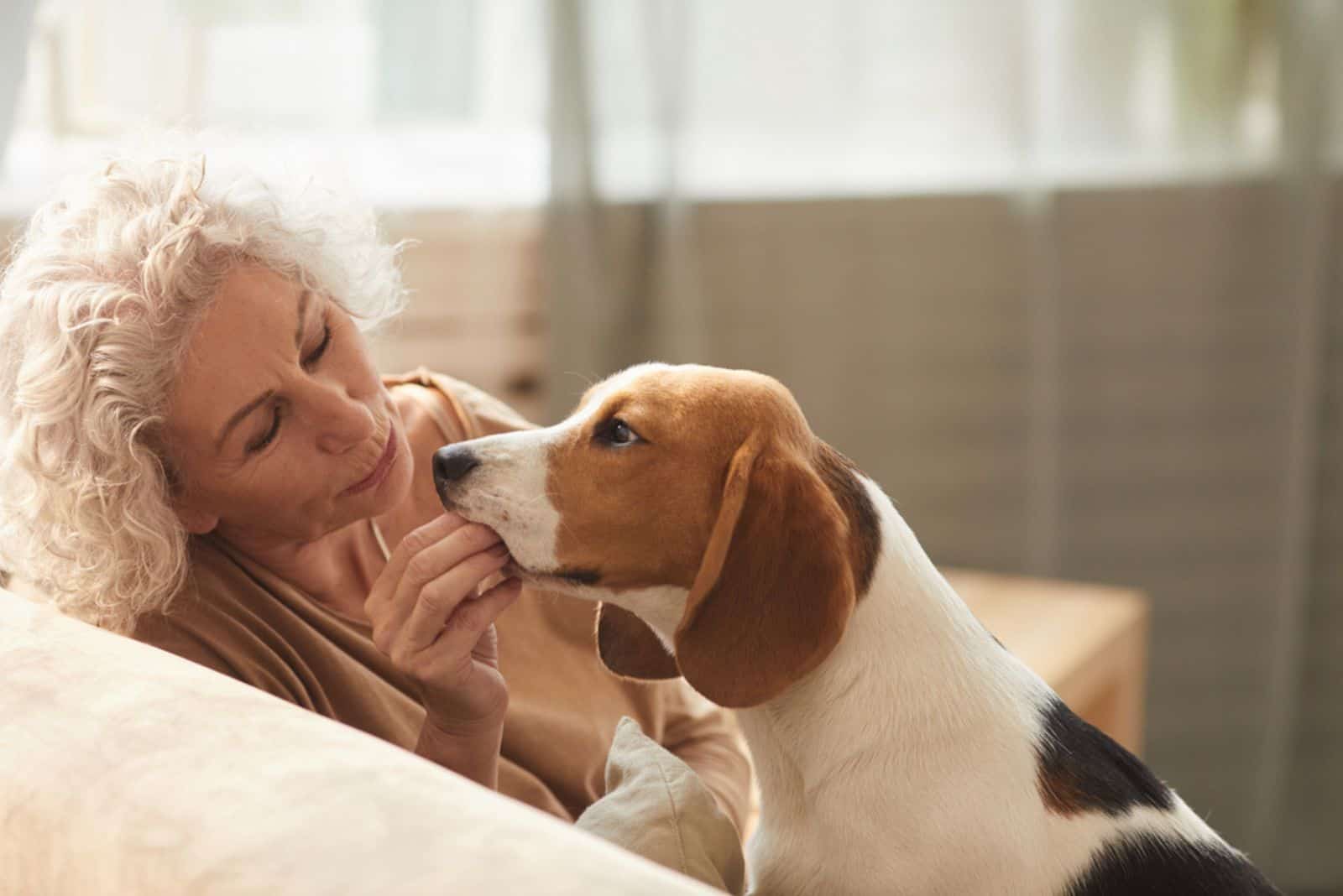
Once you have determined the exact cause of your older dog’s panting during the night, you should start doing everything you can to calm your dog from panting. Of course, this does not refer to if the cause of your dog’s panting is medical; in this case, your vet will prescribe adequate treatment.
What you can do is make sure your older dog still has his regular daily routine. Just as younger dogs need the puppy schedule to learn how their everyday life together will function, older dogs also will feel secure when they know what to expect in each part of the day.
We mentioned how older dogs should not exercise right before bedtime, but this does not mean they should not exercise at all. Exercise is essential for a dog’s physical and mental health; everyday walks will make your older dog sleep better and feel closer to you.
Furthermore, make sure that your dog’s place for sleep is super comfortable. Leave a light on so your older dog does not feel lost when you are not with him at night and make sure the room temperature is just right; not too cold nor too warm.
What Is The Best Way To Help An Older Dog With Panting?
At some point in its life, your dog will have to deal with a particular health issue, and this is even more likely to happen when your dog gets older.
Therefore, all pet owners should be prepared to be able to help their dogs in need. There are some ways you can help your senior dog panting at night:
• Make sure your dog is not sleeping in an overheated room.
• Always provide your dog with drinking water.
• Don’t feed your dog right before his bedtime.
• Try to walk your dog a couple of hours before his bedtime.
• Keep your dog at optimal weight.
• Do everything for your dog to feel loved and secured in your home.
• If you notice your dog is anxious, try to figure out the cause of the anxiety immediately.
• Take your dog to regular vet check-ups, and if you notice your senior dog panting at night, contact a veterinarian right away!
And, remember to stay positive. Even if your dog is struggling with a particular health issue, there are ways to help him and to keep your pet with you for years to come.
Final Words
We learned that various reasons are causing a senior dog panting at night.
Some of them are not so severe, while some others might imply a serious medical condition in a dog.
We should take care of our pets at every stage of their life, but they need special care and attention in their advanced age. If your old dog is panting excessively, try to make him as comfortable as possible.
Please pay attention to your dog’s needs, ensure his body temperature is regulated, and figure out whether the dog has some additional symptoms.
Dog’s panting is his way of regulating his body temperature, but it might mean a lot more. Make sure you notice behavioral changes in your dog on time, and consult a veterinarian who will undoubtedly have a solution for your pup.
Read Next:
• Why Is My Dog Restless At Night? Dog’s Behavior Explained
• 8 Week Old Puppy Breathing Fast While Sleeping: 10 Causes

